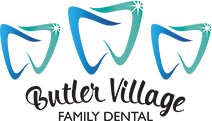Other Services
Mouthguards
A mouthguard is a device worn over the teeth to protect them from injury during teeth grinding or contact sports. Generally, three basic types of mouth guards are available
Dry Mouth
Dry mouth or xerostomia is a condition in which a person does not have enough saliva in the mouth, and as a result, the mouth is unusually dry. Saliva is essential to keep the mouth moist and clean. It also stimulates digestion and prevents bacterial and fungal infections. Dry mouth can be a sign of certain diseases, and if left untreated, can lead to serious health complications.
Sensitive Teeth
Are you feeling a sharp pain or discomfort when you eat or drink something that is hot, cold or sweet? Most of us have experienced this type of pain. It is called “Tooth sensitivity” or” Sensitive Teeth”. This is due to wearing away of the tooth surface or gum tissue. Tooth sensitivity can be the first warning sign of a more serious dental disease that has to be treated.
Children’s Teeth
Deciduous teeth are the first teeth that appear in a child’s mouth and are commonly referred to as “baby teeth” or “milk teeth”.
Wisdom Teeth Extractions
Tooth eruption is nothing but the process in which the tooth travels from beneath the jaws to enter the mouth and become visible to us. A tooth is called “impacted” if its path is obstructed by any other tooth, bone or soft tissue.
Diabetes and Dental Health
Diabetic patients have a high risk of developing periodontal disease. Poor diabetic control increases glucose levels in the saliva and encourages bacterial growth thereby causing periodontal disease.
Dentures
A denture is a removable dental appliance replacement for missing teeth and the surrounding gum tissue. They are made to closely resemble your natural teeth and may even enhance your smile.
Oral & Maxillofacial Surgery
Oral and maxillofacial surgery is a branch that involves a number of surgical procedures

